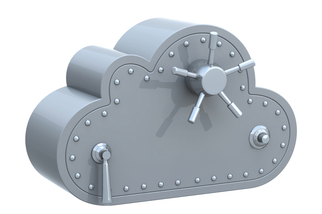Security Threats Soar Along with Data Volumes

Lost data are costing organizations on average $1 million per month as data volumes soar and protecting stored data grows harder with the emergence of edge infrastructure handling AI and machine learning platforms.
Surging data loss and related costs are a function of what a survey compiled by Dell Technologies (NYSE: VMW) estimates is a “staggering” 831 percent increase in stored data since 2016, amounting to an average of about 13.53 petabytes. Dell’s Global Data Protection Index reveals that companies are on average are managing almost 40 percent more data than a year ago.
Along with more sophisticated cyber-threats, the leading causes of data loss are a marked increase in “disruptive events” such as infrastructure downtime. According to the Dell survey, 82 percent of respondents reported a disruption over the last 12 months, up from 76 percent a year ago. More than two-thirds anticipate an attack or other incident this year that will halt operations.
Just as more companies are turning to multiple cloud vendors to avoid downtime, they are also using more than one data protection vendor to reduce data loss. According to the Dell survey, 80 percent of those polled are using multiple security tools, with paradoxical results: 39 percent of those using two or more security vendors said their data were more vulnerable than companies relying on a single vendor.
Hence, “the cost of disruption is increasing at an alarming rate,” the data protection index concludes, pushing the average annual price tag for IT disruptions above $1million.
A major source of vulnerable data is the rapid deployment of emerging technologies such as 5G edge networks and cloud-native applications along with AI and machine learning workloads. All have made data protection more complex.
For example, 5G edge networks that store data closer to computing resources were found to be the hardest to protect (67 percent) followed closely by AI and machine learning platforms (64 percent). Once lost, fully 81 percent of the surveyed believed their existing data protection steps would be unable to recover those data.
Dell and other infrastructure vendors assert that organizations are taking a cloud-based approach to shielding data, including greater protections for critical application distributed via containers along with cloud-native and software-as-a-service applications.
Dell highlighted data security features in the rollout last fall of it automated IT infrastructure strategy. Among the selling points was the growing need for “a multi-cloud operational hub so we can orchestrate and automate the multi-cloud world,” said John Roese, Dell Technologies’ president and CTO for products and operations.
The hub is designed to apply AI-driven automation and data security across enterprise infrastructure, Roese added.
For example, Dell recently announced support for protecting Kubernetes containers on its data protection platform.
The enterprise preference for cloud deployments will likely force data security vendors to follow suit. Dell found that 85 percent of respondents said data protection vendors must reduce data loss by shielding cloud-native applications.
“To combat data protection complexity, minimize disruption and mitigate the risk of data loss and downtime, organizations need simple, reliable, efficient, scalable and more automated solutions for protecting applications and data regardless of the platform,” Beth Phalen, president of Dell’s data protection unit, noted in a blog post.
Dell’s data index includes responses from about 1,000 IT managers in 15 countries.
Related
George Leopold has written about science and technology for more than 30 years, focusing on electronics and aerospace technology. He previously served as executive editor of Electronic Engineering Times. Leopold is the author of "Calculated Risk: The Supersonic Life and Times of Gus Grissom" (Purdue University Press, 2016).











